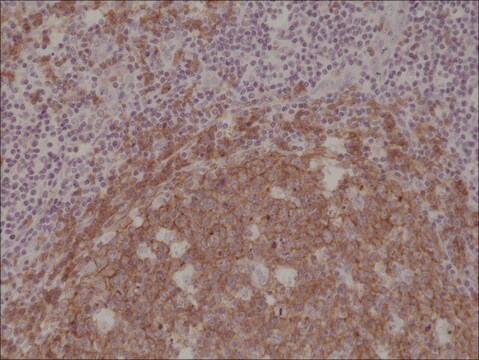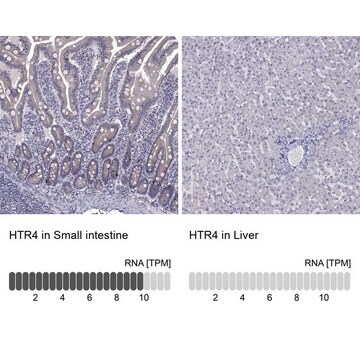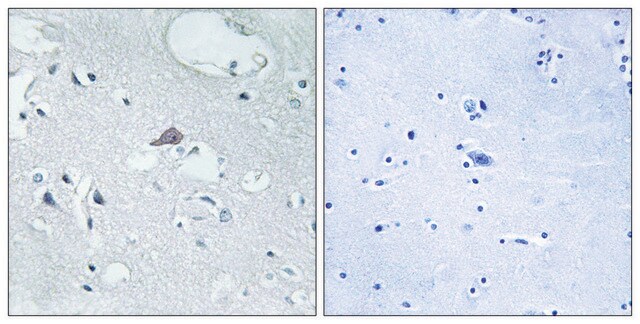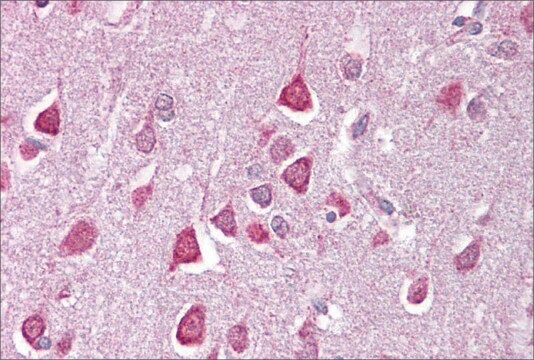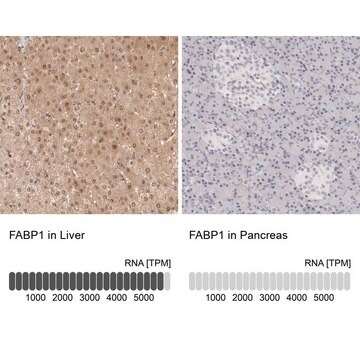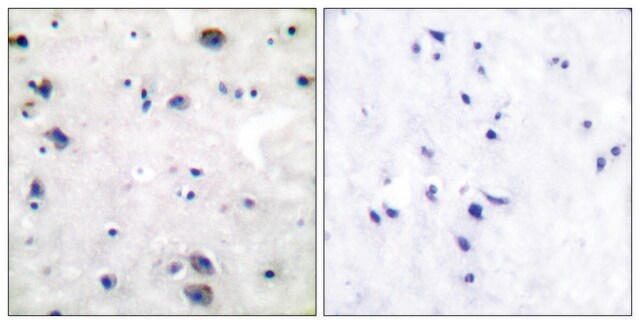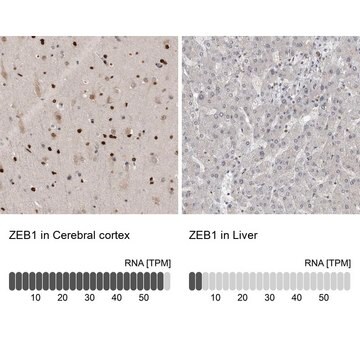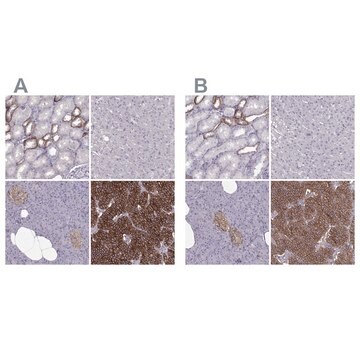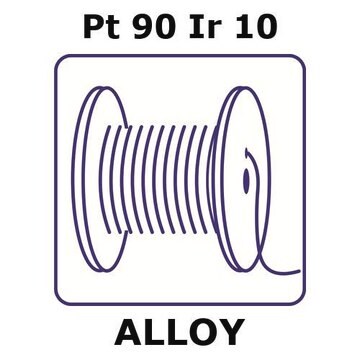推荐产品
生物源
rabbit
品質等級
共軛
unconjugated
抗體表格
affinity isolated antibody
抗體產品種類
primary antibodies
無性繁殖
polyclonal
產品線
Prestige Antibodies® Powered by Atlas Antibodies
形狀
buffered aqueous glycerol solution
物種活性
human
技術
immunohistochemistry: 1:20- 1:50
免疫原序列
LTLLSVSARTGFCKKQQELWQRRKEAAEALGTRKVSVLLATSHSGARPAVSTMDSSAAPTNASNCTDALAYSSCSPAPSPGSWVNLSHLDGNLSDPCGPNRTDLGGRDSLCPPTGSP
UniProt登錄號
運輸包裝
wet ice
儲存溫度
−20°C
目標翻譯後修改
unmodified
基因資訊
human ... OPRM1(4988)
一般說明
The gene OPRM1 (opioid receptor μ 1) is mapped to human chromosome 6q24-q25. The gene spanning a length of 200kb contains 11 exons that yield 17 splice variants.
免疫原
Mu-type opioid receptor recombinant protein epitope signature tag (PrEST)
應用
All Prestige Antibodies Powered by Atlas Antibodies are developed and validated by the Human Protein Atlas (HPA) project and as a result, are supported by the most extensive characterization in the industry.
The Human Protein Atlas project can be subdivided into three efforts: Human Tissue Atlas, Cancer Atlas, and Human Cell Atlas. The antibodies that have been generated in support of the Tissue and Cancer Atlas projects have been tested by immunohistochemistry against hundreds of normal and disease tissues and through the recent efforts of the Human Cell Atlas project, many have been characterized by immunofluorescence to map the human proteome not only at the tissue level but now at the subcellular level. These images and the collection of this vast data set can be viewed on the Human Protein Atlas (HPA) site by clicking on the Image Gallery link. We also provide Prestige Antibodies® protocols and other useful information.
The Human Protein Atlas project can be subdivided into three efforts: Human Tissue Atlas, Cancer Atlas, and Human Cell Atlas. The antibodies that have been generated in support of the Tissue and Cancer Atlas projects have been tested by immunohistochemistry against hundreds of normal and disease tissues and through the recent efforts of the Human Cell Atlas project, many have been characterized by immunofluorescence to map the human proteome not only at the tissue level but now at the subcellular level. These images and the collection of this vast data set can be viewed on the Human Protein Atlas (HPA) site by clicking on the Image Gallery link. We also provide Prestige Antibodies® protocols and other useful information.
生化/生理作用
The gene OPRM1 (opioid receptor μ 1) encodes a μ opioid receptor that functions in pain perception and addiction to drugs of abuse, such as cocaine, nicotine, and alcohol. It serves as a target for opioid drugs, such as morphine, methadone and heroin, and opioid peptides, such as β-endorphin and endomorphins, and mediates their effects. Single nucleotide polymorphism A118G in this gene is associated with an inclination to drug addiction and lesser response to painful stimuli.
特點和優勢
Prestige Antibodies® are highly characterized and extensively validated antibodies with the added benefit of all available characterization data for each target being accessible via the Human Protein Atlas portal linked just below the product name at the top of this page. The uniqueness and low cross-reactivity of the Prestige Antibodies® to other proteins are due to a thorough selection of antigen regions, affinity purification, and stringent selection. Prestige antigen controls are available for every corresponding Prestige Antibody and can be found in the linkage section.
Every Prestige Antibody is tested in the following ways:
Every Prestige Antibody is tested in the following ways:
- IHC tissue array of 44 normal human tissues and 20 of the most common cancer type tissues.
- Protein array of 364 human recombinant protein fragments.
聯結
Corresponding Antigen APREST72740
外觀
Solution in phosphate-buffered saline, pH 7.2, containing 40% glycerol and 0.02% sodium azide
法律資訊
Prestige Antibodies is a registered trademark of Merck KGaA, Darmstadt, Germany
免責聲明
Unless otherwise stated in our catalog or other company documentation accompanying the product(s), our products are intended for research use only and are not to be used for any other purpose, which includes but is not limited to, unauthorized commercial uses, in vitro diagnostic uses, ex vivo or in vivo therapeutic uses or any type of consumption or application to humans or animals.
未找到合适的产品?
试试我们的产品选型工具.
儲存類別代碼
10 - Combustible liquids
水污染物質分類(WGK)
WGK 1
閃點(°F)
Not applicable
閃點(°C)
Not applicable
個人防護裝備
Eyeshields, Gloves, multi-purpose combination respirator cartridge (US)
Anna Cieślińska et al.
Tumour biology : the journal of the International Society for Oncodevelopmental Biology and Medicine, 36(6), 4655-4660 (2015-01-27)
Structure-dependent μ-opioid receptor (MOR) activity is an important element in cancer opioid analgesic effectiveness. It is widely accepted that guanine (G) substitution for adenine (A) at OPRM1 gene sequence position 118 changes receptor glycosylation pattern. This is associated with decreased
O Bartošová et al.
Physiological research, 64 Suppl 4, S521-S527 (2015-12-19)
Genetic factors may contribute to the differential response to opioids. The aim of this study was to evaluate the association between polymorphisms of µ1-opioid receptor gene OPRM1 (rs1799971), and P-glycoprotein transporter gene ABCB1 (rs1045642, rs2032582), and piritramide efficacy under postoperative
An evaluation of mu-opioid receptor (OPRM1) as a predictor of naltrexone response in the treatment of alcohol dependence: results from the Combined Pharmacotherapies and Behavioral Interventions for Alcohol Dependence (COMBINE) study.
Anton RF
Archives of General Psychiatry, 65, 135-144 (2008)
Heidelinde Fiegl et al.
Gynecologic oncology, 165(1), 129-136 (2022-01-17)
The opioid agonist D,L-methadone exerts analgesic effects via the mu opioid receptor, encoded by OPRM1 and therefore plays a role in chronic pain management. In preclinical tumor-models D,L-methadone shows apoptotic and chemo-sensitizing effects and was therefore hyped as an off-label
Roger B Fillingim et al.
The journal of pain : official journal of the American Pain Society, 6(3), 159-167 (2005-03-18)
Responses to painful stimuli are characterized by tremendous interindividual variability, and genetic factors likely account for some proportion of this variability. However, few studies have identified genetic contributions to experimental pain perception in humans. This experiment investigated whether the A118G
Global Trade Item Number
| 货号 | GTIN |
|---|---|
| HPA014509-100UL | 4061836321482 |
| HPA014509-25UL | 4061841349198 |
我们的科学家团队拥有各种研究领域经验,包括生命科学、材料科学、化学合成、色谱、分析及许多其他领域.
联系客户支持
